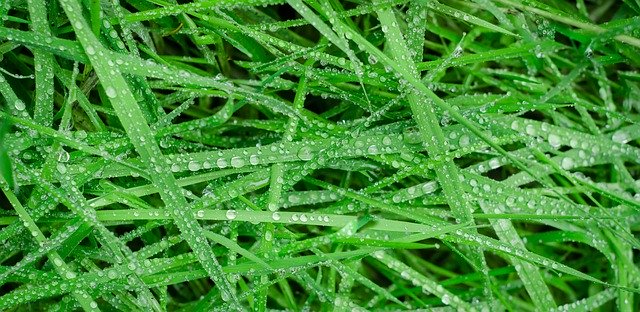
Grass doesn't need to be watered as much as other plants. It enters a state of inactivity when moisture reaches a critical level, then resumes growth once it receives water again.
There are several other sound reasons for choosing not to water your grass, including when costs are high, when reservoirs are not being adequately replenished or when watering may do more harm than good.
On the other hand, there are several reasons why watering your grass might be a good idea after all - for example, if a wet surface is required for games and young children, or if you've undertaken some form of renovation and need to promote recovery. At other times, you may just need a light watering to soak moss before applying a ferrous sulphate-based moss killer or as part of a seeding/turfing process.
Whatever your reasons, you're still likely to ask yourself the question 'how often should I water my grass?' from time to time. And below, we try to help answer!
Watering your lawn
In short, you should water your grass when it tells you to, not according to some random plan. Your soil and grass type and exposure to sun and wind are just a few factors that will determine how often you need to be watering your grass. The level of fertiliser present in your grass may also have an impact on water levels, as an adequately fertilised lawn will tend to tolerate dry spells better than one lacking the required nutrients. This might mean some lawns require watering once a week, whilst others may only need water once a month in the exact same weather conditions.
Common signs to look out for that indicate your grass requires water are:
- A change in colour with your grass becoming dull
- Grass losing its 'bounce' with footprints remaining in the lawn once stepped on
How much water should I use?
You should try to water your grass deeply each time. Aim for at least half an inch for clay soils and an inch for sandy soils. An easy way to work this out is to place a few straight containers into your sprinkler to catch some water. Time the process until there is the required amount of water in the container so you'll know how long you need to water for. If you're on a water meter, there's no need to worry, as watering your grass for the required time and amount should still be affordable.
When should I water my grass?
Try to avoid watering your grass at night, as this promotes disease. The best time to water is before the heat of the day so that the lawn has enough time to dry before nightfall. You can set your sprinkler (if you have them) to turn on from 4 am to early afternoon on most days, even sunny ones. If the temperature gets above 24°C, however, then you should turn the water off. Also, if you have a disease on your lawn, such as red thread and fusarium, watering it can make it worse. So, be sure to inspect your lawn before you consider heavy watering.
How often should I water my lawn?
Watering your grass too little, too often or at the incorrect times promotes weeds, disease, moss, weed grasses and shallow rooting. Therefore, it is important to understand when and how often to water your grass because you may be doing more harm than good. Sometimes, soil becomes very hard to re-wet once it has dried out as a result of a fungal condition such as dry patch. By using a wetting agent, you can aid water penetration and retention in most circumstances.
We hope this blog has helped to answer your question of how often to water grass. For more information on how often you should water your lawn or to speak to one of our lawn care specialists regarding your lawn, please get in touch with us today.
Contact Us >